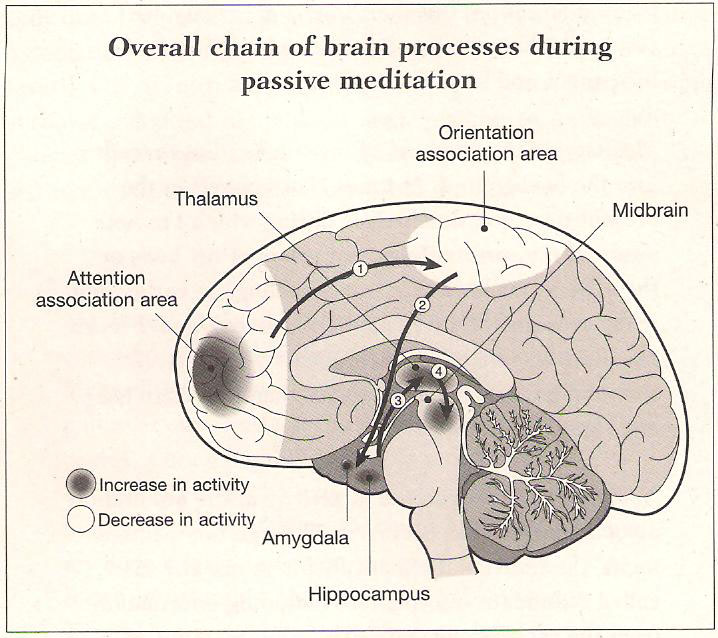Can meditation help you learn a new task quicker via increasing a growth factor responsible for nerve cell growth?
My vote is “definitely!”, and that’s what my thesis study alluded to as well.
The pilot study examined the effects of a 30-minute meditation intervention on BDNF levels, a protein that is responsible for the growth, survival, and maturation of our nerve cells like the ones in our brain, and cortisol production in a healthy sample of 7 experienced meditators compared to 7 non-experienced meditators.

BDNF levels and cortisol were compared in both groups prior to and following a 30-minute meditation session. Since we were measuring the protein responsible for nerve growth (BDNF), and cortisol, a hormone that can kill nerve cells if it’s chronically elevated, we explored whether meditation improves cognitive performance, as measured with a computer application called Lumosity. We used the Lumosity games to introduce a new task to each person, then measured how much their scores improved after 30 minutes of meditation.
So what did we find? On average the experienced meditators had a higher BDNF level before the meditation. Interestingly, the non-experienced meditators had a slightly higher level of BDNF after meditating. So it’s possible people that meditate daily, or almost daily, have more of this protein being produced that keeps our brain cells alive and well. And the act of meditating may also promote more BDNF to be made, especially if you’re new to meditating.
As for that stress hormone cortisol, both groups experienced a significant decrease in cortisol after meditating.
What about the learning part? Will meditating help me learn something better? It seems that way. The experienced meditators scored higher on almost all their Lumosity brain game scores after meditating, and some of scores were dramatically higher. While not a huge study with glaring results, it has some interesting findings. And can you really argue that meditation is NOT good for you!
 Parts of your brain that become more active or less active during meditation. The active areas are associated with attention span, emotions, memory, and learning.
Parts of your brain that become more active or less active during meditation. The active areas are associated with attention span, emotions, memory, and learning.
There’s other reasons why meditation may help you be able to learn better and faster. It’s well researched that meditation activates areas of our brain that help us focus on one particular thing. Which is understandable since many types of meditation call for focusing on a single task such as clearing your mind of thoughts by focusing only on your breathing. This study used a simple Qigong meditation, and I’d be willing to bet that most forms of meditation would get the same or ‘bigger’ results. Especially moving forms of meditation since exercise is another popular way to increase BDNF levels.
So take a couple minutes to relax your mind and listen to your breath before that next study session, test, or meeting. Your body will love you for it!

– Travis Whitney, NMD, MSc




